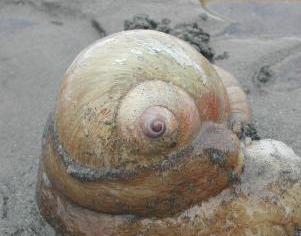Since so many people -- both strangers and my closest friends -- have learned about my cancer here, I'll provide a little more detail for everyone's information. I appreciate so much all the love and support shown by everyone throughout this whole time, even when I was not able to express exactly what was going on. Friendship, it turns out, takes more forms than I ever could have imagined.
What do you have?
I've been diagnosed with Invasive Carcinoma of the Cervix, Stage Ib1 (diagnosed as gross polyploid lesion less than 4cm), Squamous cell, Grade 3 (poorly differentiated), LVSI negative (no microscopic lymphovascular involvement within tumor), no lymph node enlargement visible on MRI, 1.5 mm of invasion with 6 mm of lateral invasive extent.
How did you find out?
I was diagnosed late in the first trimester of my pregnancy when I was examined for unusual bleeding. A visual exam revealed a growth on/in/through my cervix. At first the obstetrician assumed it was a benign growth, which apparently aren't unusual, but a subsequent biopsy showed that it was a Grade 3 (aggressive) cancer.
At 16 weeks of pregnancy, I underwent cervical conization surgery. While this was high-risk and not generally recommended for pregnancy -- the standard treatment for Stage Ib during the first trimester is immediate termination and hysterectomy -- it successfully removed the tumor and showed no involvement of invasion at the margins. Some noninvasive carcinoma (surface cells only) remains.
Are you okay?
The conization removed around 2 cm of cervical tissue. My pregnancy has been under close observation for early dilation due to cervical incompetence; so far everything looks fine. Because even microscopic cancer can spread quickly through the cervix and surrounding tissue, the safest treatment is a radical hysterectomy ("It's not your mother's hysterectomy.") Statistically, Ib1 patients treated this way have a 85-95% survival rate. Because of the success and positive indicators of the conization, I imagine myself to be on the high end of those numbers -- although the delay in treatment, due to pregnancy, has not been studied enough to know how that might affect the outcome.
How are you feeling?
In general, these days I feel . . . physically healthy, thankfully free of pain, surprisingly exhausted (I am fighting mild anemia and low weight gain as my second trimester comes to a close), conditionally grateful, and occassionally terrified.
This is so scary! Did you have any problems in the past that predicted this?
I had annual pap smears without fail between the ages of 18 and 30, and every two years after that. In 15 years, I had two occassions of abnormal pap smears: In 1994, I had some apparent dysplasia that resolved with no biopsy or further treatment. In 2004, when I was last pregnant, I had apparent "severe dysplasia" that either resolved after labor and deliver or was originally misdiagnosed. This appeared in a different location than my eventual tumor, which was found 16 months after my last (uneventful) exam and pap smear.
What do you think of the HPV vaccine?
That it is ridiculously politicized, commercialized and aggressively marketed for a preventative measure that might save 10,000 occurrences of cancer a year; If only our culture put this much emphasis into other fundamental women's issues. But I have no particular concerns and it appears to be as effective and low-risk as any new vaccine. Selfishly, I find it pretty annoying to have an illness that is the year's hot topic. It makes me self-conscious and clutters information resources for actual cervical cancer patients.
What's Next?
My daughter will be delivered by cesarean section immediately prior to my radical hysterectomy. This will involve about five hours under general anesthesia and about six weeks of serious physical recovery. If all goes well, this will happen in August.
No, I am not confident that this is best for the baby's health, due to the risks of cesarean delivery and disruption of breastfeeding. I am a little more confident that it is the better alternative for my own health, but deciding on how and when to be treated have been difficult decisions. I have not lost my trust in birth and my skepticism about medicine, just because because I'm a cancer patient. And because it's not up to my doctors to "let" me do anything -- delay treatment, go to full term, deliver vaginally -- the final responsibility for these decisions rests only with me. Which is a huge headache.
I will have a pelvic lymph node dissection which will give more information on whether the cancer has mestastized. If all goes well, I'll be carefully observed every few months for a matter of years, and might eventually be categorized as "NED" (No Evidence of Disease). If all doesn't go well, my remaining treatment options are radiation and/or chemotherapy. Which, I try not to think about much.
You Should Be Grateful! After all, all that matters is a healthy baby.
Okay, no one has really said this. Please don't, or I will have to kick some ass.
